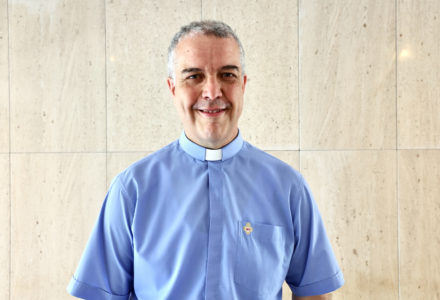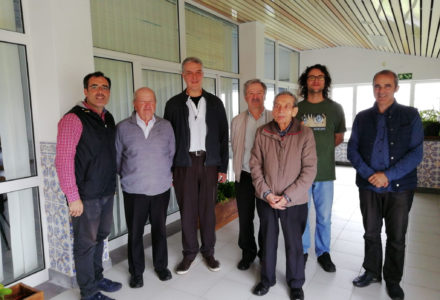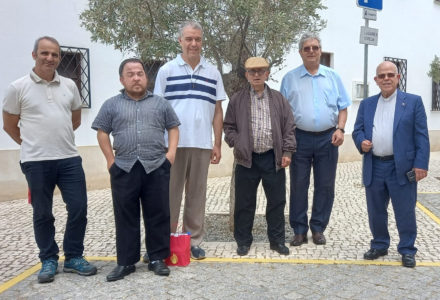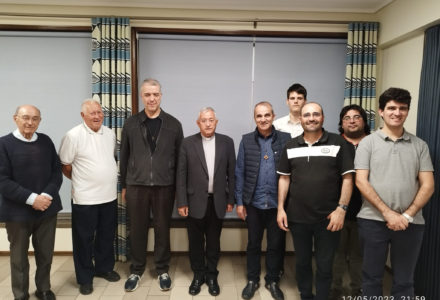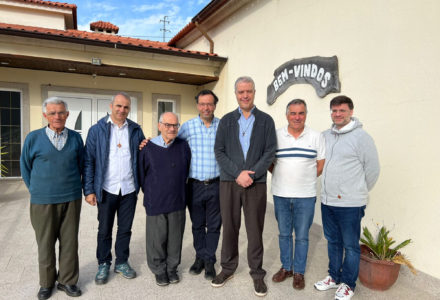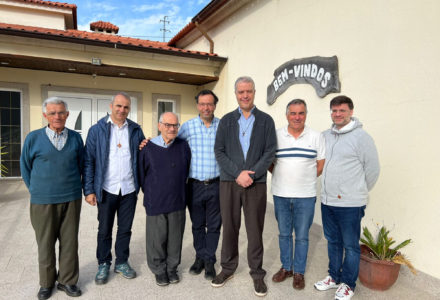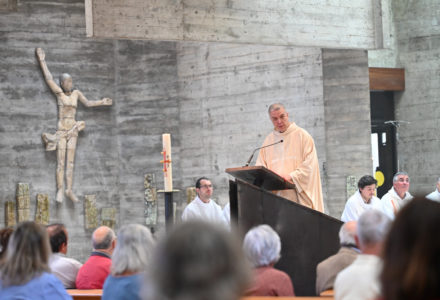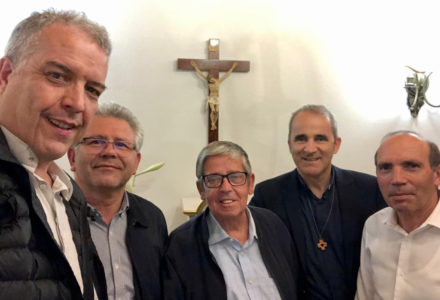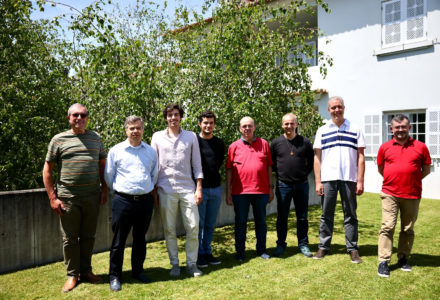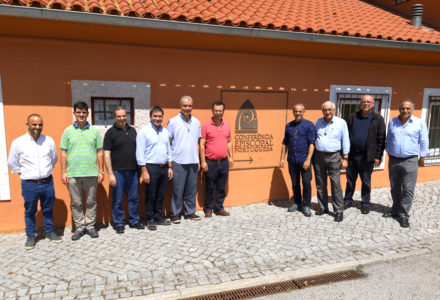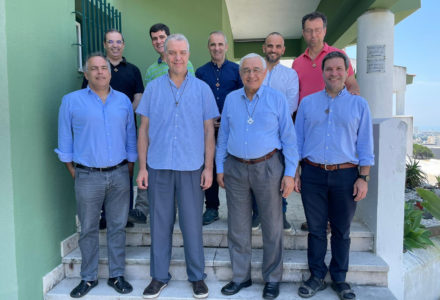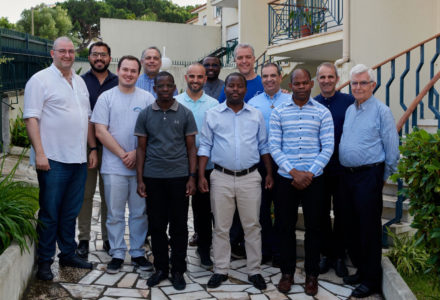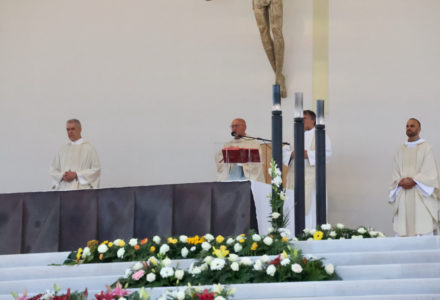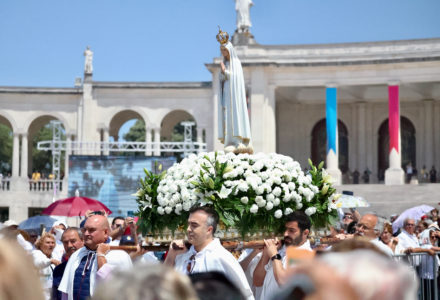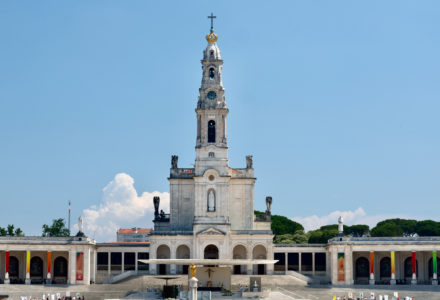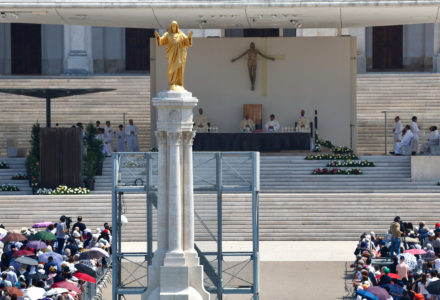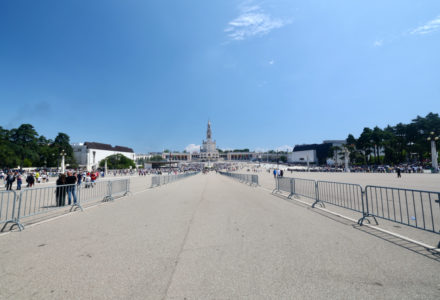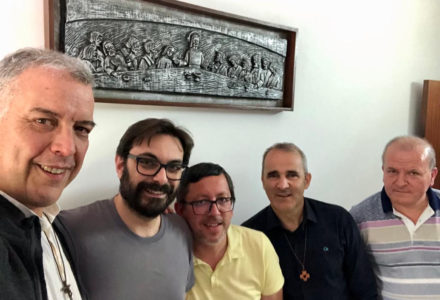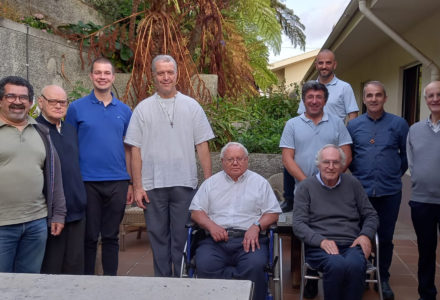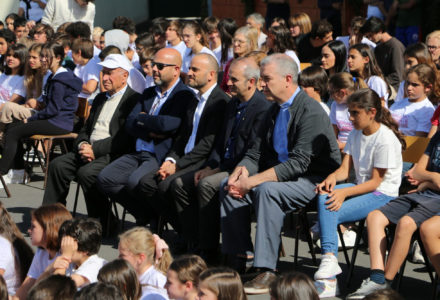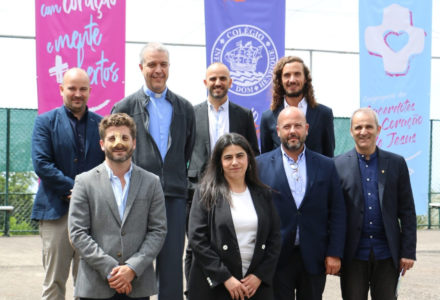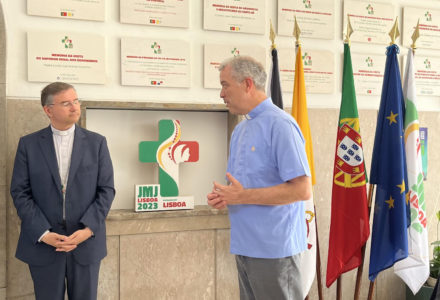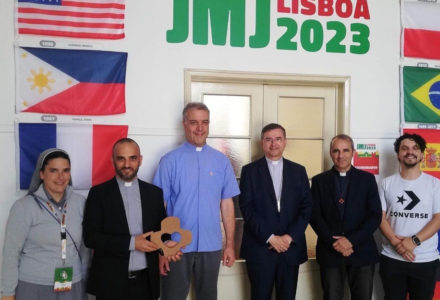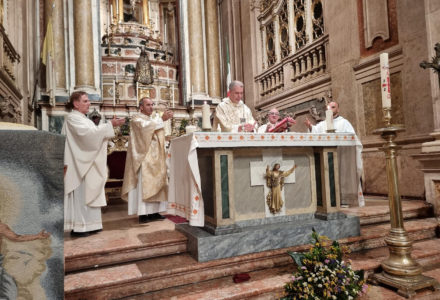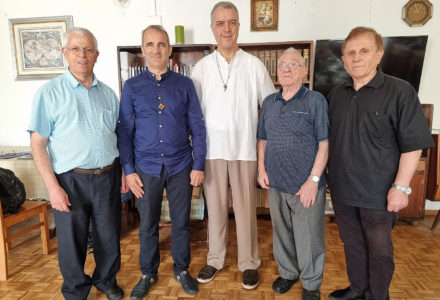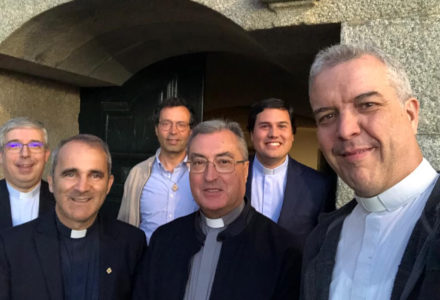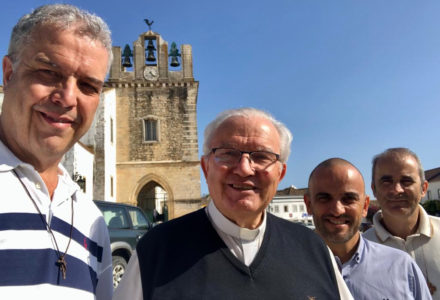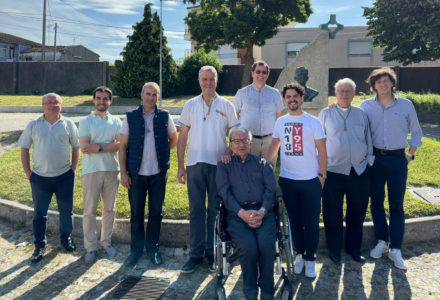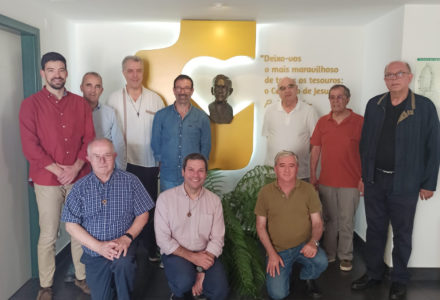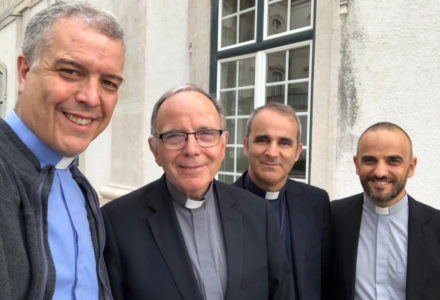Carlos Luis, Superior General of the Congregation, and Fr. Levi, General Councilor, dedicated a month to visiting the Portuguese Province. The visit served not only to make themselves acquainted with the life and mission of the SCJs in Portugal but also to strengthen and deepen their ties with the Congregation and to strengthen the spirit of the Sint Unum.
Carlos Luis Suárez Codorniú, Superior General, and Fr. Levi dos Anjos Ferreira, General Councilor, made the canonical visit to the Portuguese Province from May 8 to June 7. For a month they visited and met with all the communities, had the opportunity to speak personally with each religious, visited the main centres of pastoral activity, had contact with the laity, met with the bishops of the dioceses where the SCJs are present, gave interviews to some media? They also had the opportunity to visit the headquarters of the Portuguese Episcopal Conference and also the headquarters of World Youth Day, where they were informed of the gigantic work that is being done to welcome more than a million young people who will participate in World Youth Day. The Portuguese Province has been entrusted with the coordination of the “Forgiveness Park” where young people can approach the sacrament of reconciliation. “It is a very beautiful responsibility that we have received and it is very much in tune with our spirituality,” stressed the Superior General.
After this truly demanding program, the Superior General’s visit ended with a meeting with the Provincial Superior and his Council, destined to make a balance of these days spent in Portugal. The passage of the Superior General through the communities was an opportunity to know and evaluate the quality of community life as well as the mission that is being developed in the Church in Portugal. The visit also served to strengthen the Province’s connection to the Congregation in a fuller experience of the Sint Unum. There are many challenges facing the congregation today in many parts of the world and the province cannot remain oblivious to all these and is once again called upon to revive the missionary dimension which from the beginning has characterized SCJ’s presence in Portugal.
At the end of his visit to the Province, the Superior General underlines the dimension of hope that he perceived during this tour of Portugal: “I would say that the SCJs are a hope for Portugal, that the SCJs are a hope for the Church, in the measure that we are faithful to the charism we have received and that we know how to be faithful witnesses to the Gospel. In this sense, I believe that the Province of Portugal has magnificent religious who wish to express much of what they live as Christians, as consecrated persons, in the apostolic choices they have made. The Province has a good average age, it has a significant number of very active religious. And this is always a reason for hope, but only in the measure that we remain faithful to our roots and to what the Church has entrusted to us.”
One of the highlights of the visit was the participation in the Dehonians Family Pilgrimage to Fatima that took place on June 4 and gathered more than a thousand people to pray and fraternize in an authentic family spirit with people of all ages. Taking the words of the Superior General, it can be said that this initiative, which is now more than 40 years old, was an important moment to realize that “the charism is property of the Church, it is a gift of the Church, a gift of the Spirit to the Church. We SCJs are not the owners. I think that what we have to do is always support and admire ourselves in the many facets of this charism that we have only just discovered. It always has something more to say. It is the life of the Spirit.
In Portugal SCJs live in 16 communities spread over 7 dioceses. Parish activities are those which most involve SCJs (more than thirty parishes). The social apostolate, university teaching, teaching of children and adolescents, formation of candidates, missionary animation, work with the youth, and university pastoral work are other important dimensions that characterize the mission of the almost one hundred religious who are in Portugal. To these are added those who serve the Congregation and the Church in the mission ad gentes in Madagascar, Angola, and Mozambique and those who are an expression of the internationality of the Portuguese Province through their mission in Canada, France, and Italy.


